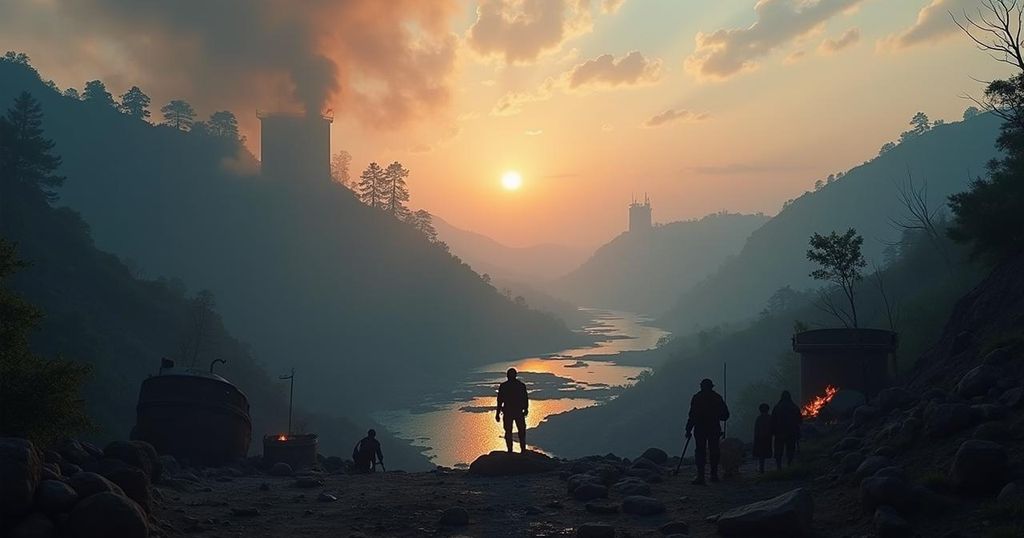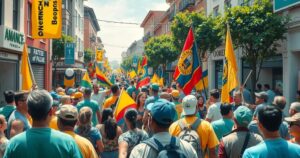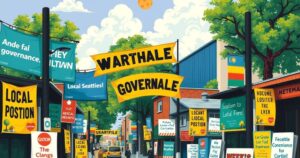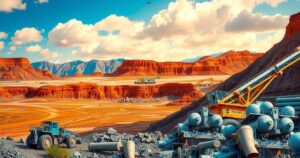Revenue Generation by M23 Rebels Through Control of Mining Resources in Eastern Congo

A U.N. report reveals that the M23 rebel group in eastern Congo generates $300,000 per month from its control of the Rubaya mining area, which is rich in tantalum. The ongoing conflict, fueled by competition over resources and allegations of foreign military support, has resulted in significant human rights violations and displacement of millions.
According to a recent report presented to the United Nations Security Council, the armed rebel group M23 in eastern Congo is generating approximately $300,000 per month from its control of a mining area. This area, known as Rubaya, is rich in tantalum, a crucial mineral utilized in the production of smartphones and computers. It represents over 15% of the global supply of this rare metal, derived from coltan. Bintou Keita, the head of the U.N. mission in Congo, underscored the severity of the situation by stating, “Unless international sanctions are imposed on those benefiting from this criminal trade, peace will remain elusive and civilians will continue to suffer.” The exploitative extraction of minerals like tantalum was also highlighted in an earlier correspondence from the Congolese government to Apple, questioning the tech giant’s awareness regarding the illicit trade of “blood minerals” infiltrating its supply chain. Eastern Congo is mired in a protracted conflict that has culminated in one of the gravest humanitarian crises globally, with over 120 armed groups vying for control over land and resources while others strive to protect their communities. These conflicts are often accompanied by egregious human rights abuses, with thousands displaced from their homes. The M23 group, predominantly composed of ethnic Tutsis, has roots dating back to a split from the Congolese army over a decade ago. This group’s aggressive resurgence is reminiscent of its significant assaults in 2012, which resulted in the takeover of Goma, the capital of North Kivu province, an occurrence that now poses a renewed threat. The Congolese government has alleged involvement from Rwanda in war crimes within eastern Congo, with U.S. and U.N. experts accusing Rwanda of providing military assistance to M23. Rwanda has often refuted these allegations, yet admitted in February to possessing troops and missile systems in the area for self-defense, citing the need to address an increasing build-up of Congolese forces near its border. In July, estimates indicated that between 3,000 to 4,000 Rwandan troops are currently collaborating with M23 in eastern Congo as the group continues to make significant territorial gains. In a move reflecting the ongoing tension, a regional court in East Africa initiated proceedings concerning a case brought forth by the Congolese government against Rwanda, asserting that Rwanda’s military presence aids rebels and constitutes a breach of Congo’s sovereignty.
The situation in eastern Congo has been exacerbated by a violent conflict that has persisted for decades, driven largely by competition over valuable mineral resources. The M23 rebel group emerged as a significant player in this conflict, with links to Rwanda, and has taken advantage of the chaotic environment to establish control over key mining areas. Congo’s natural resources, particularly tantalum from coltan, have been at the core of the conflict, often labeled as “blood minerals” due to the human rights violations associated with their extraction and trade. The involvement of neighboring countries such as Rwanda complicates the geopolitical landscape, as accusations of military support for rebel groups further inflame tensions.
The activities of the M23 rebel group in eastern Congo highlight the precarious interplay between armed conflict, mineral extraction, and international interests. The reported monthly revenue from mining operations underscores the need for an urgent international response, including the imposition of sanctions to curb the financing of violence. As humanitarian crises deepen due to ongoing violence, it is imperative for the global community to engage proactively in addressing the underlying issues that perpetuate conflict in the region, including the illicit trade of minerals and the involvement of foreign powers.
Original Source: apnews.com







